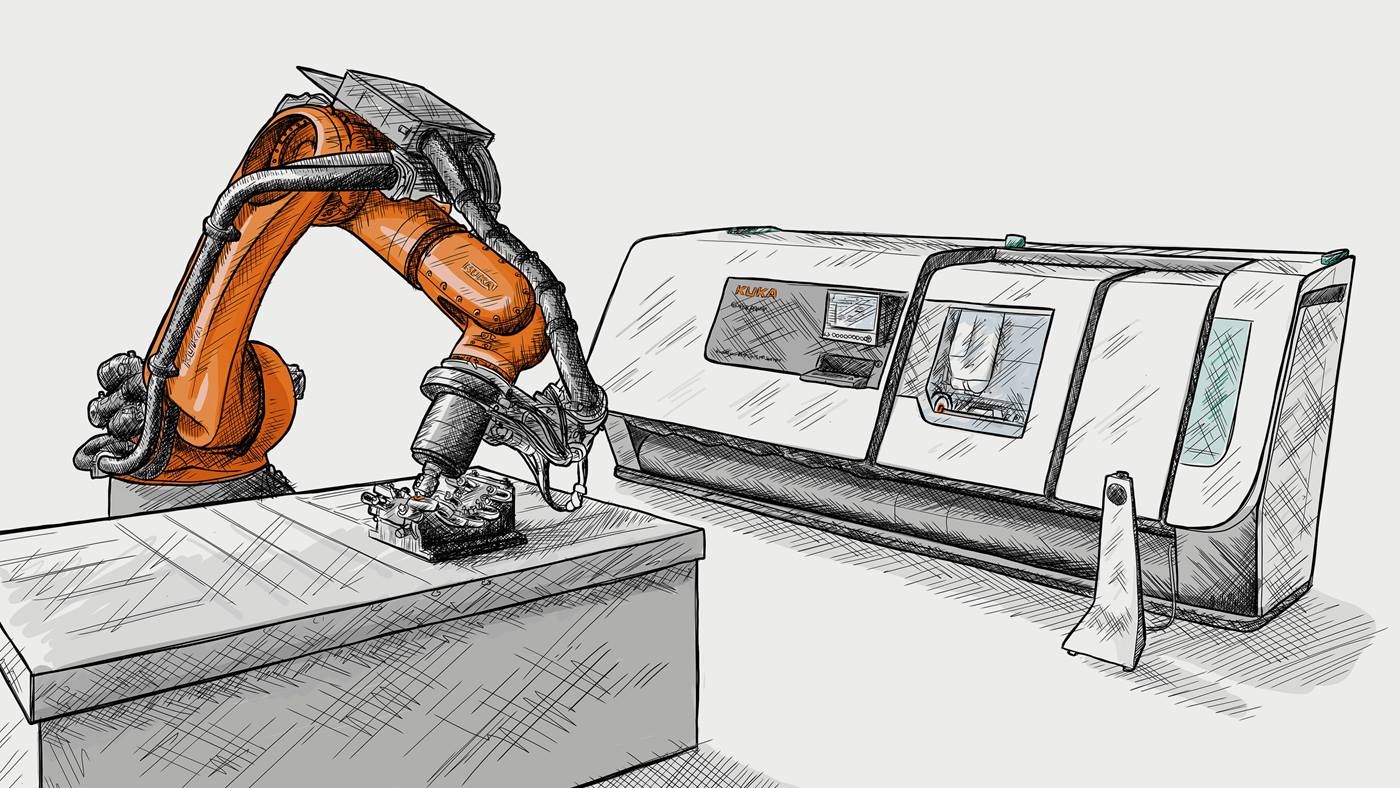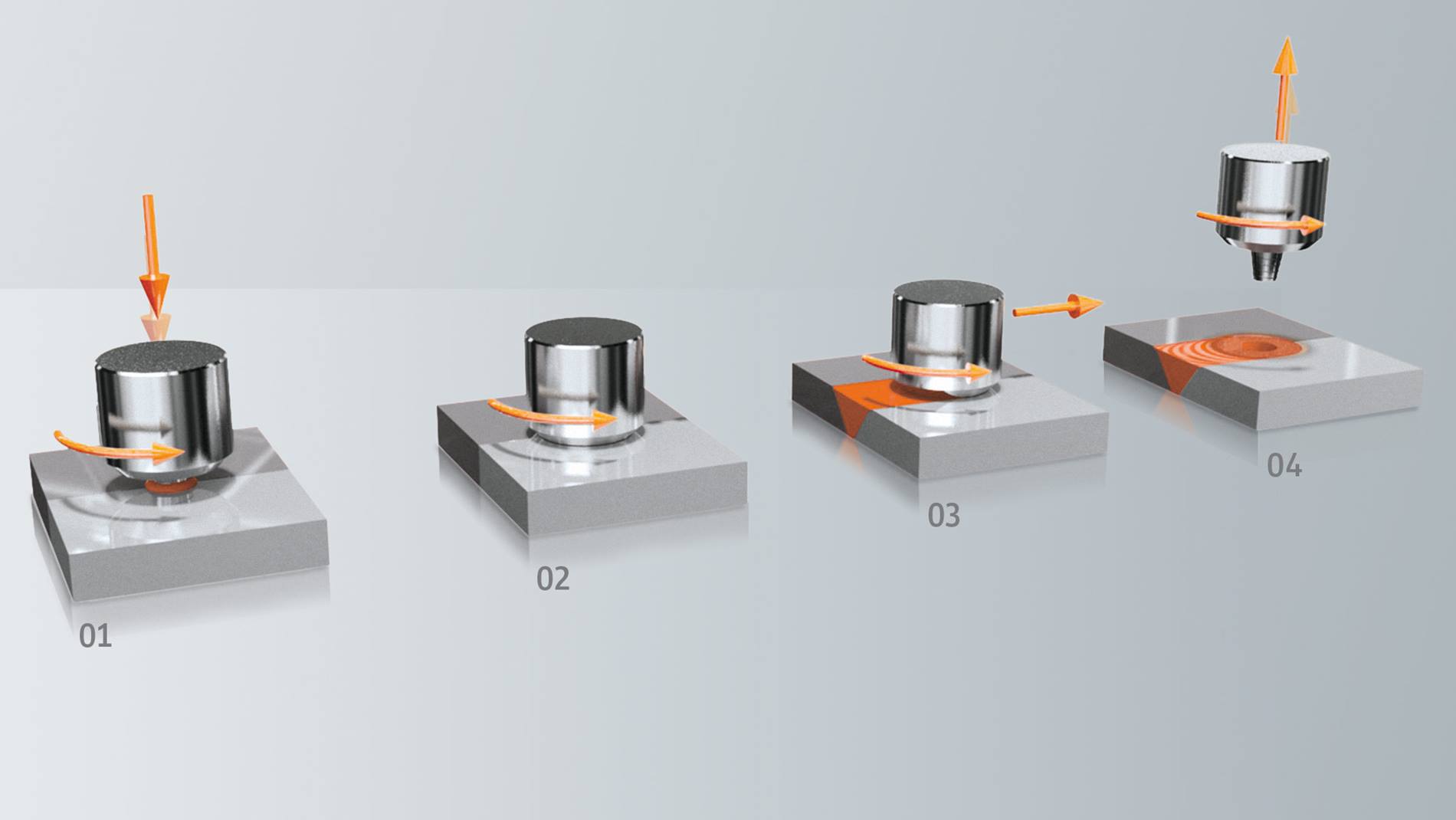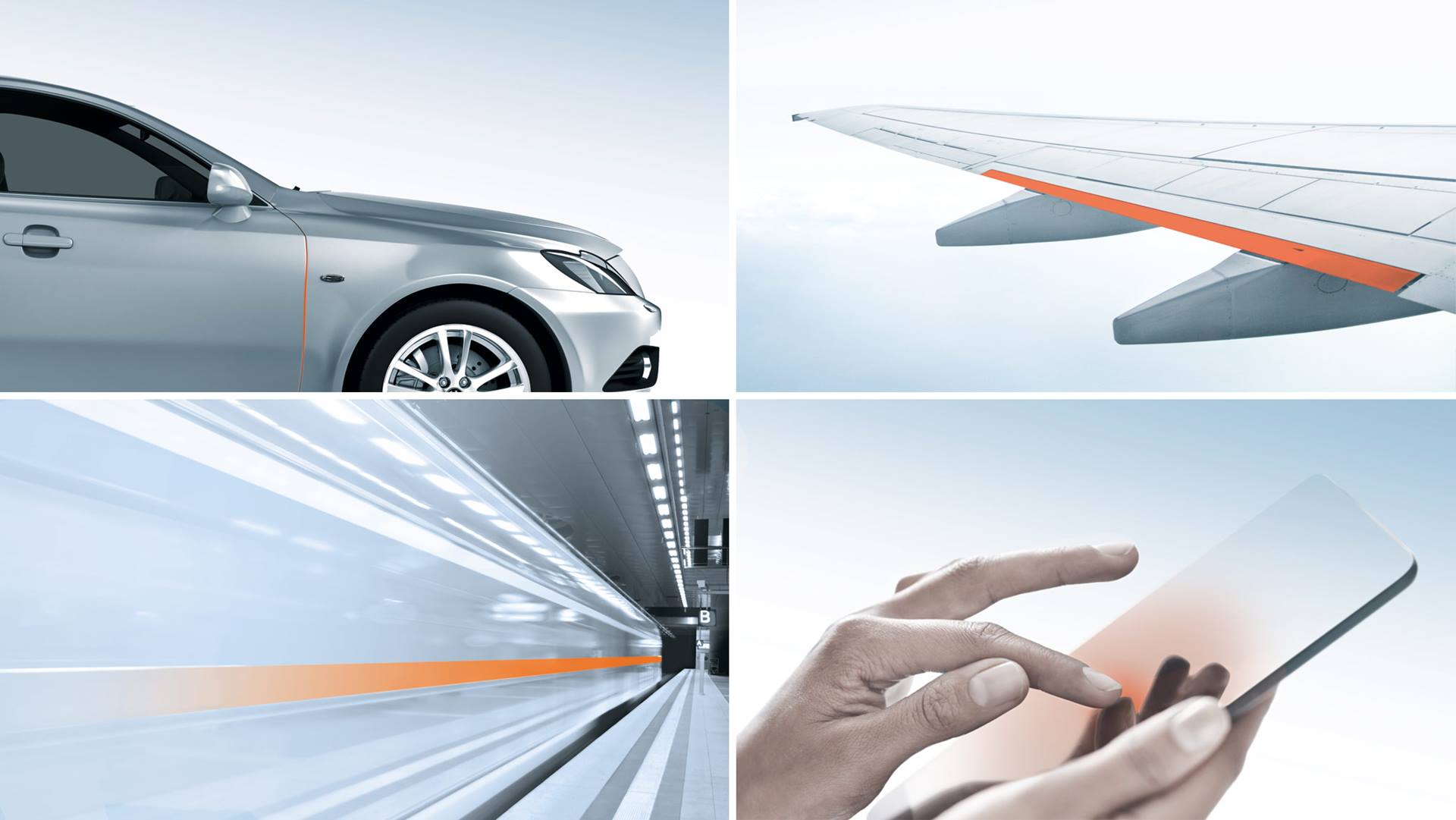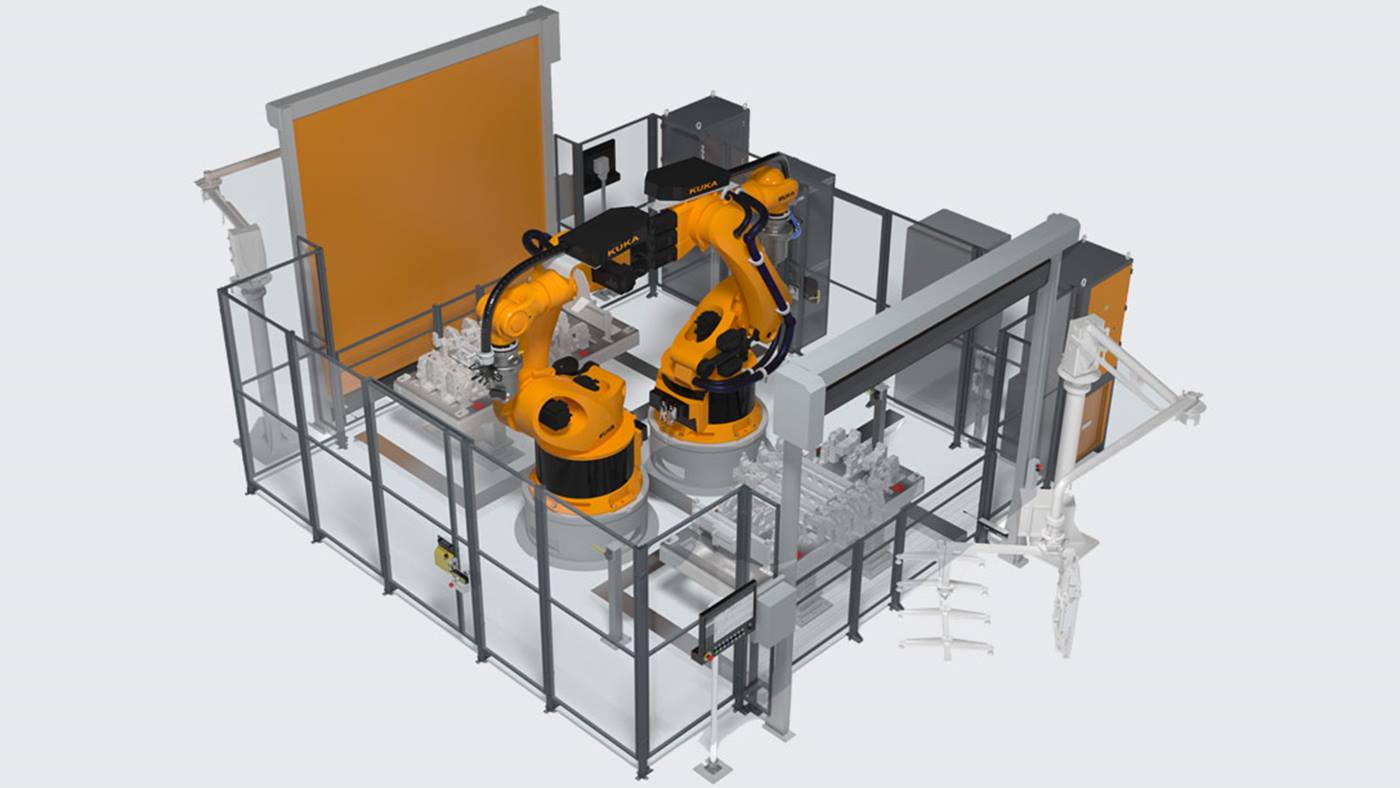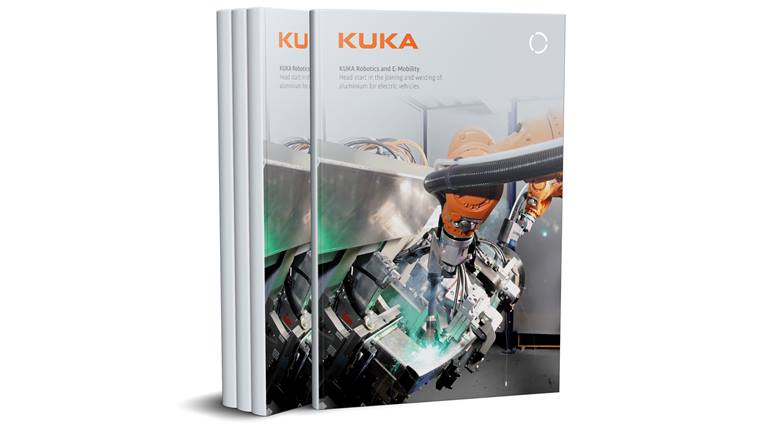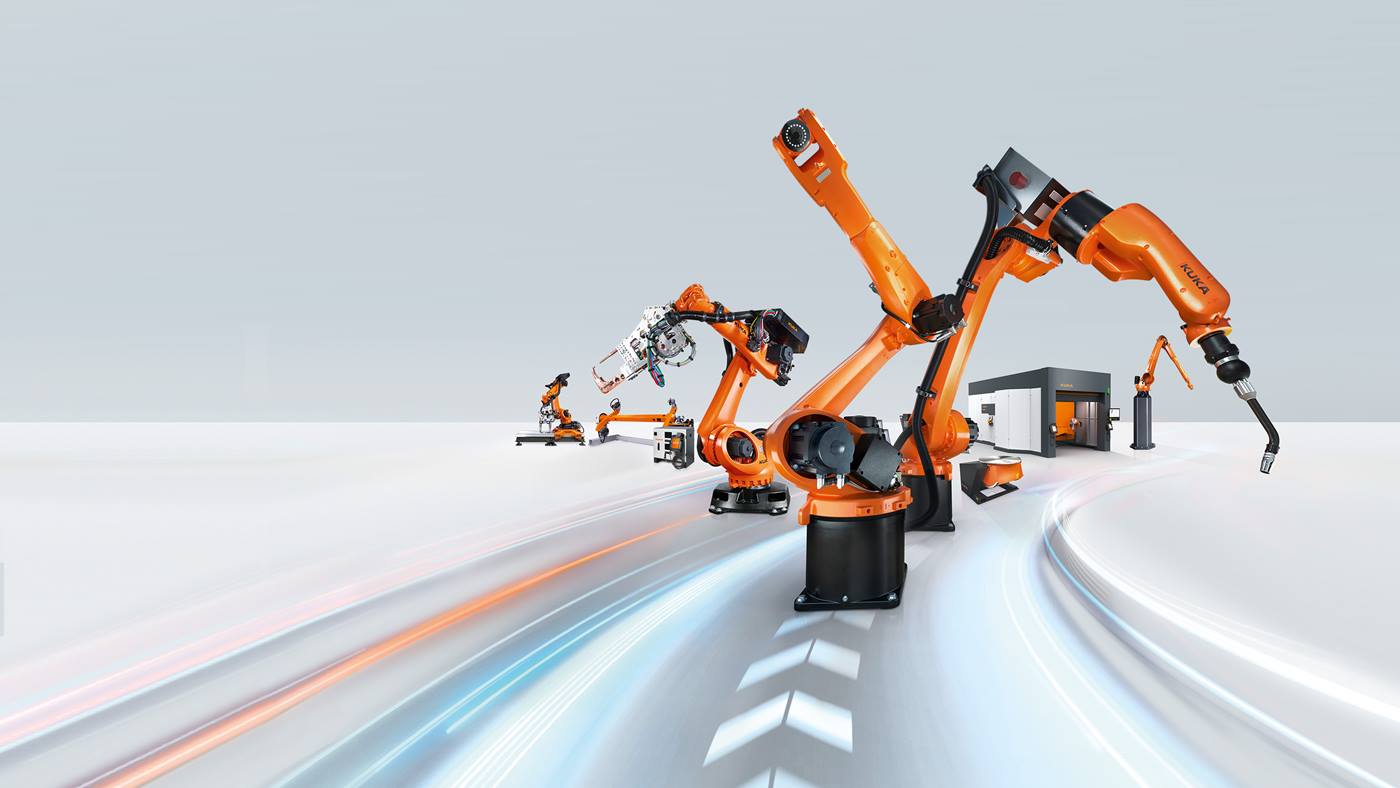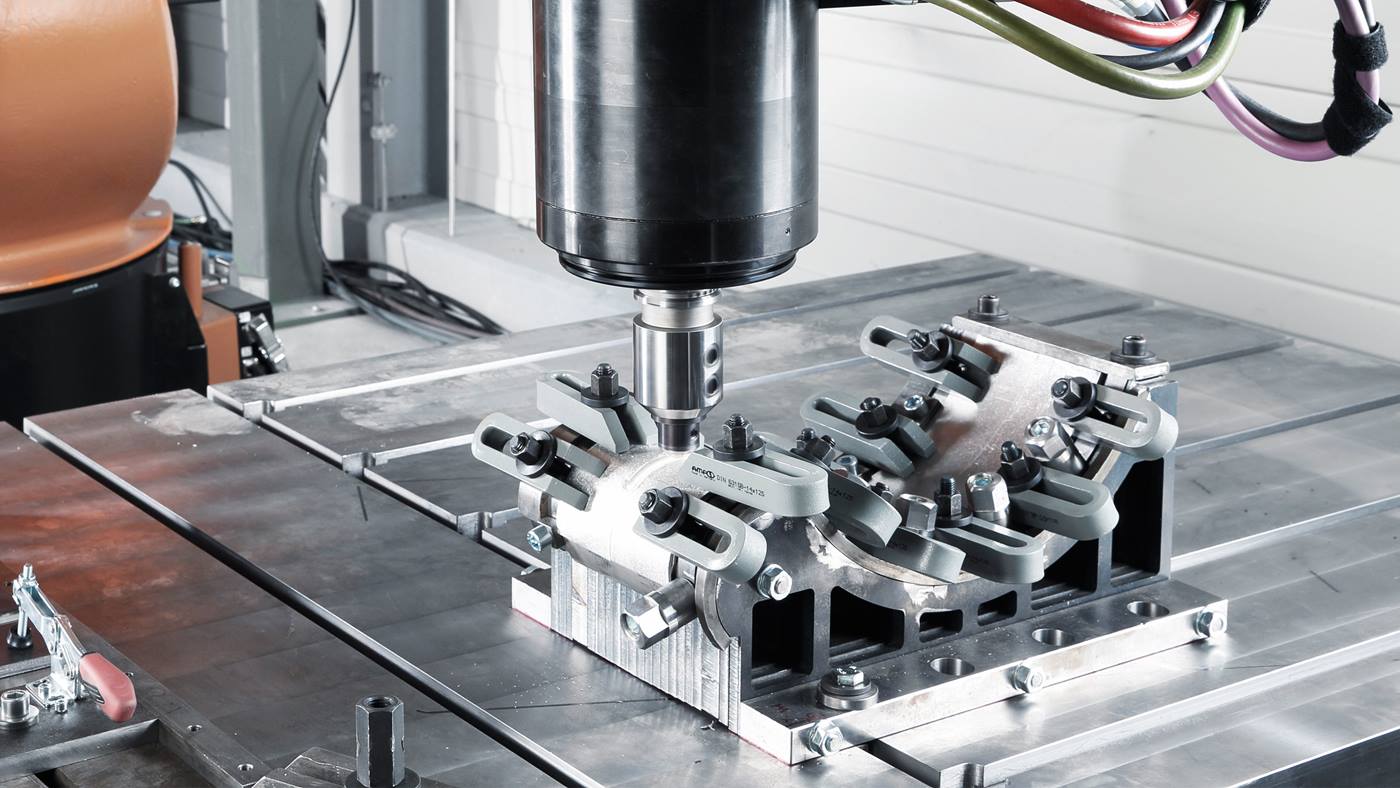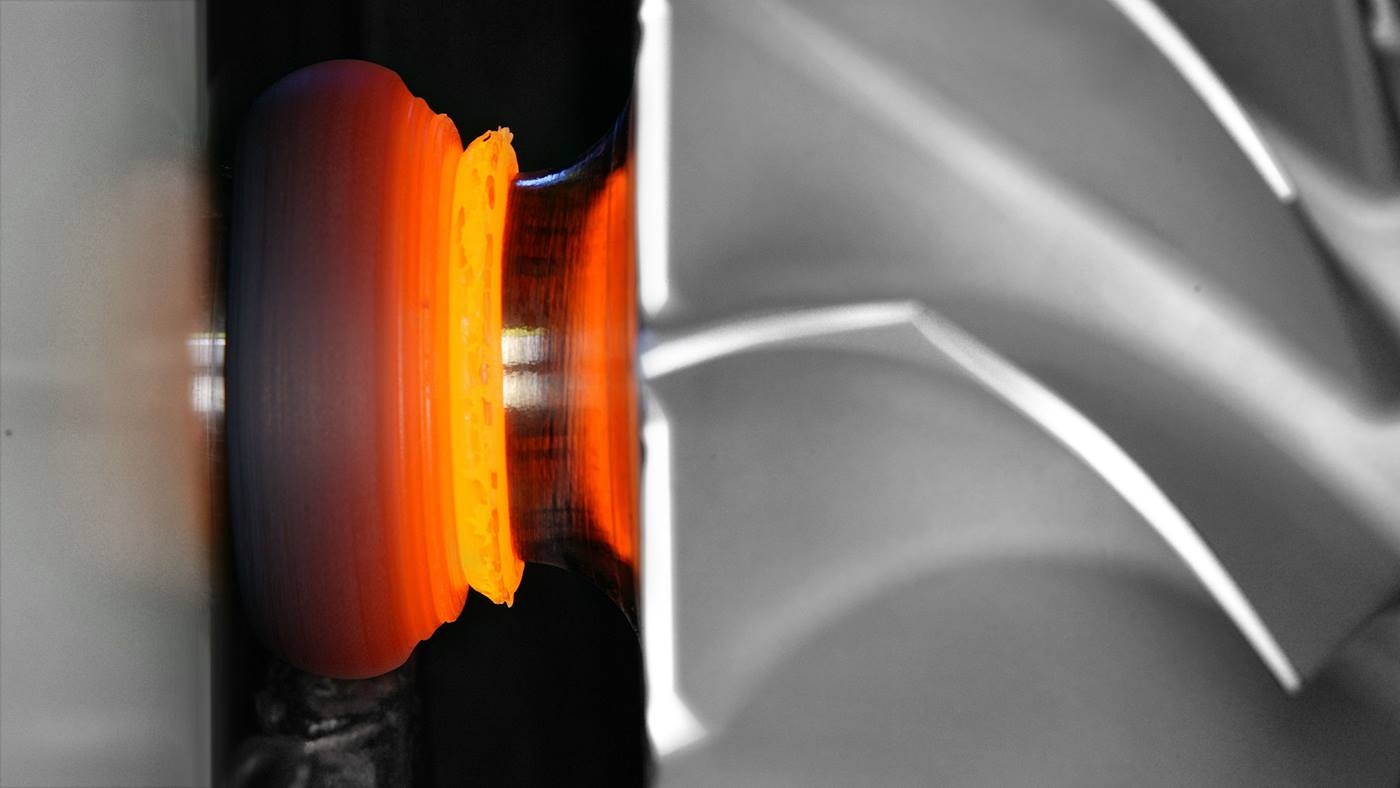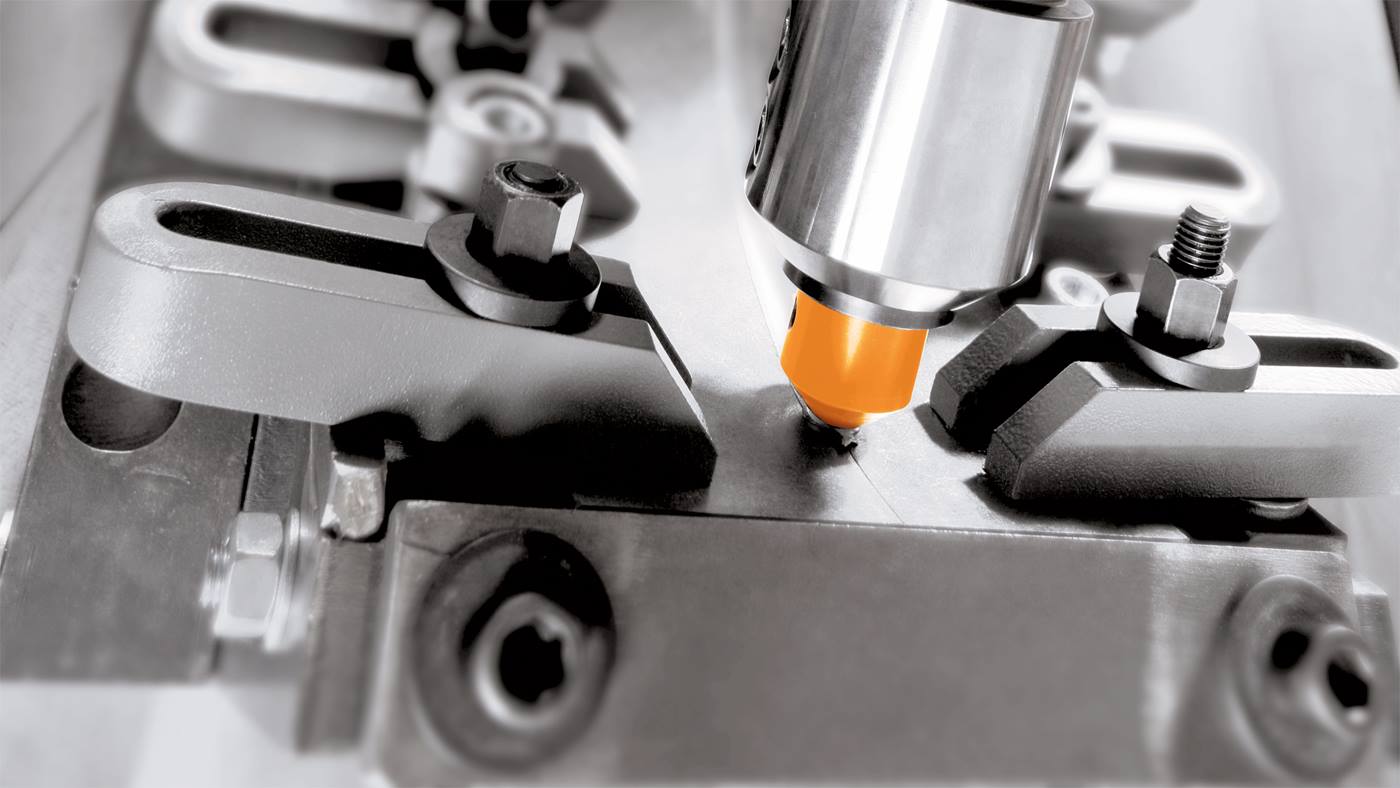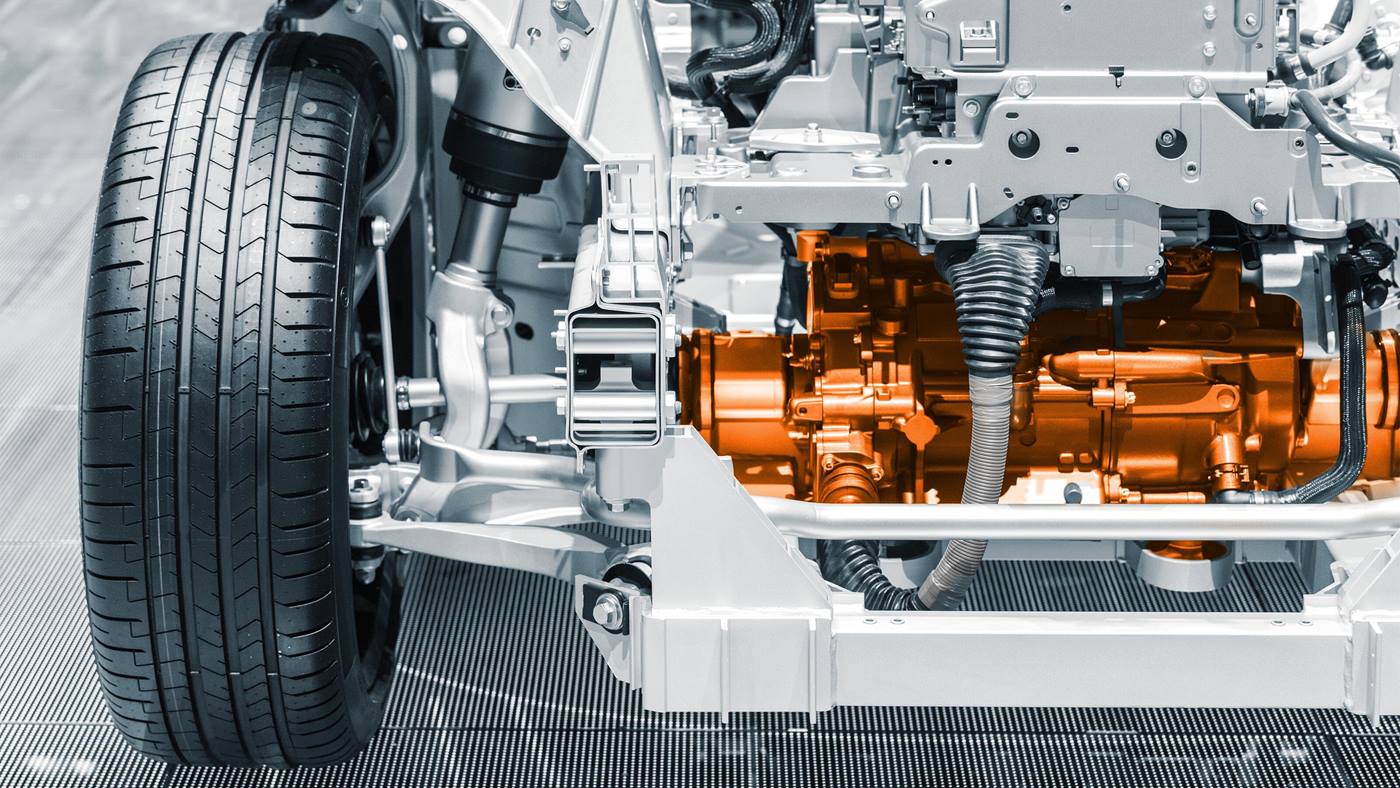Friction stir welding (FSW): the process
Friction stir welding is a process in which a rotating pin is traversed along the contact surfaces between the workpieces. The frictional heat plasticizes the material, which is welded together.
The FSW process is particularly suitable for joining non-ferrous metals with a low melting temperature and for mixed-material joints. Even materials that are difficult to weld or dissimilar materials such as aluminium with magnesium, copper or steel can be friction stir welded.
Friction stir welding offers a number of advantages over conventional arc welding processes.
FSW ensures top weld quality - No welding defects such as pores or cracks
- Joining of a wide variety of materials possible
- Comparatively low heat input
- High seam strength with minimal welding distortion
FSW guarantees cost-effectiveness - Economical joining of complex 3D geometries
- Material savings through component optimization
- No consumables such as shielding gas or filler wire
FSW is labelled as "green technology" - Environmentally friendly thanks to low energy consumption
- No fume extraction or anti-glare measures required
Due to its ideal combination of strength and light weight, aluminum plays an important role in electromobility. In welding and joining processes, aluminum places high demands on the technologies used. With comprehensive process know-how and the right products, KUKA prepares you for the technological transformation towards electromobility. The battery box example shows how robots enable the production of aluminum components to the highest quality standards.
Read about what is important for aluminum welding in the electromobility sector
Download e-book

